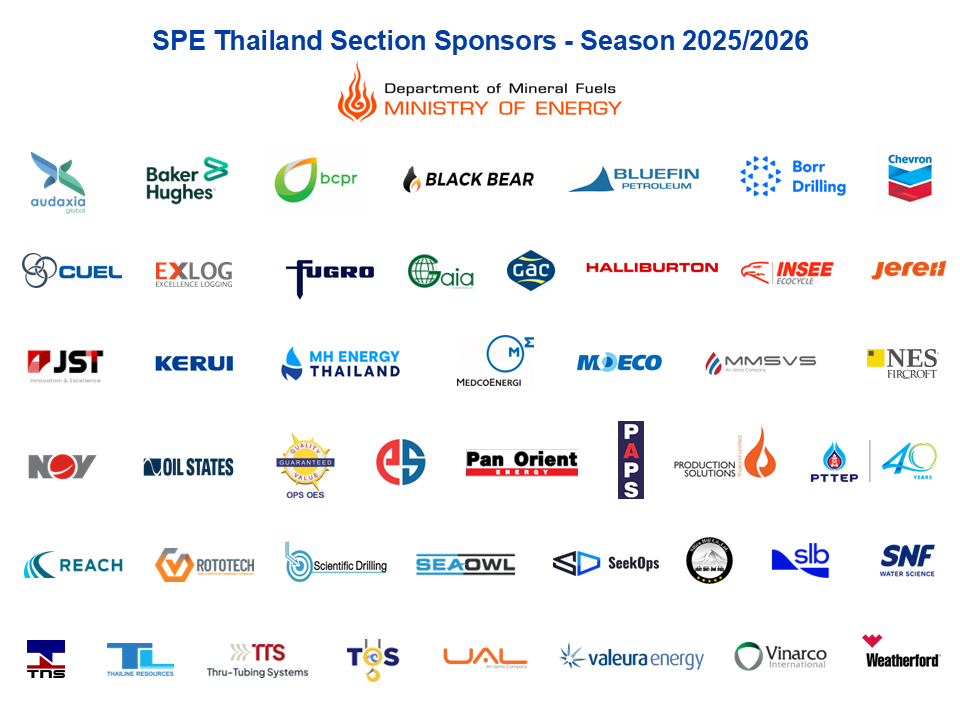Abstract:
Thailand’s energy challenge as a hot, urbanised economy with large processing industries driving cooling, refrigeration, and low-temperature process heat accounting for 40–70% of peak electricity. This drives over capacity, grid congestion, costs, and emissions. Geothermal’s role in Thailand demonstrates that the opportunity is real, scalable, misunderstood.
Thailand is not volcanic and operates a 30 year old
geothermal plant (300 kW Fang). National
electricity planning (PDP) does not include geothermal. However, Thailand
possesses strong shallow and moderate geothermal gradients (25–40 °C/km in
central and eastern regions; up to 70 °C/km in the north). For Thailand the opportunity is deploying
long-life thermal infrastructure through Organic Ranking Cycle (ORC).
ground-source heat pumps (GSHP), aquifer thermal energy storage (ATES),
absorption cooling, and direct-use heat. Screening indicates 3–6 GW of
distributed cooling potential beneath Bangkok, the Eastern Economic Corridor,
and major northern cities - delivering cooling, freezing, and low-temperature
process heat as utility services, with electricity generation optional.
Turkey, the most relevant analogue, has deployed over 4,000
MWₜₕ
of geothermal heat capacity, supplying municipalities, hospitals, universities,
and district networks. Balçova operates at ~130 °C with doublet
designs, delivering heating and cooling for decades with utility-style
ownership, standardised designs, and anchored institutions. Similar outcomes are observed in Europe,
China, and ME, where geothermal succeeds, not power.
Oil and gas subsurface and project-delivery skills are
essential to scale geothermal — including drilling, well integrity, reservoir
management, and cost control — but must be applied with caution as Geothermal
is a utility business with thermal resource complexities.
With modular, mature technologies in 1–20 MW blocks,
geothermal systems integrate into existing chilled-water, district cooling, and
industrial heat networks, displacing 25–50% of electricity. Priority applications in Thailand include
food processing and freezing (700–1,200 MW-cooling nationally), universities,
hospitals and industrial parks.
Geothermal in Thailand is relevant and can change the game
for the country but it not a power story — it is a thermal utility cooling and
heat infrastructure solution
Biography:
Philip Askew is a senior executive and strategist with over 25 years of leadership experience across the global energy and industrial sectors. He has held senior roles including Founder & CEO, Managing Director, Venture Partner, and Engineer, working with Avenir Energy, Schlumberger, Carrier (United Technologies), ENOC Ventures, Boston Consulting Group and Shell.
Philip holds an MBA from the Darden School of Business in
the USA and a First-Class Honours degree in Petroleum Engineering from UNSW.
His experience spans the full energy value chain—upstream,
midstream, and downstream. He has worked with most Asian NOCs, majors and
independents and has led P&Ls, capital programs, M&A, venture
build-outs, and regulatory engagements, while leading high-performing,
multicultural teams across Asia-Pacific and the Middle East.
More recently, Philip has focused on green energy
investments and early-stage platforms, including geothermal energy development
in Thailand and Southeast Asia, alongside broader energy transition
opportunities.
